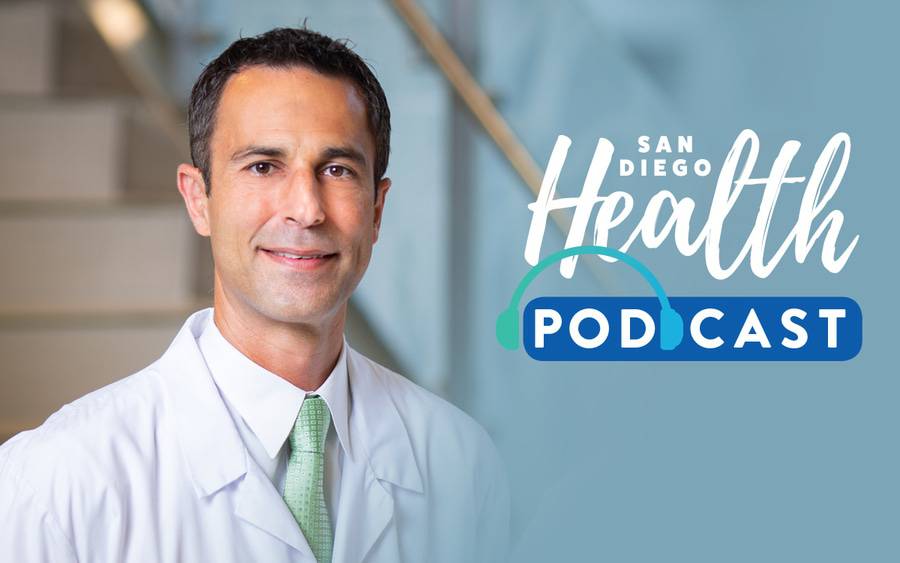Integrative Medicine: The Best of Both Worlds (podcast)
Scripps Center for Integrative Medicine treats various conditions

Dr. Chris Suhar, Integrative Cardiology, Scripps Center for Integrative Medicine, Scripps Clinic
Scripps Center for Integrative Medicine treats various conditions
Common courses of treatment for ailments that impact a person’s life long-term involve pills of some kind. But what if lifestyle changes, acupuncture, and homeopathic remedies could make that condition more manageable too? Doctors specializing in integrative medicine use a combination of all therapeutic approaches — Eastern, Western, and lifestyle intervention — to treat disease symptoms and their root causes and steer a patient toward optimal health.
In this episode of San Diego Health, host Susan Taylor and guest, Chris Suhar, MD, an integrative cardiologist and medical director of the Scripps Center for Integrative Medicine, discuss what integrative medicine is and what it does, and how a person’s lifestyle (behaviors, emotions, stressors, etc.) plays a role in illness, as well as in wellness. Dr. Suhar also recounts how his father’s eventual death from a somewhat manageable condition, diabetes, sparked his interest in integrative medicine.
Doctors at the Scripps Center for Integrative Medicine treat various conditions, inflammation, and chronic pain — sometimes without prescription drugs. The center also features nutritionists, acupuncturists, healing touch therapists, biofeedback specialists and others who use non-narcotic approaches.
Listen to the episode on how integrative medicine treats chronic diseases
Listen to the episode on how integrative medicine treats chronic diseases
Podcast highlights
Watch the San Diego Health video on integrative medicine
Watch the San Diego Health video featuring Dr. Suhar discussing integrative medicine.